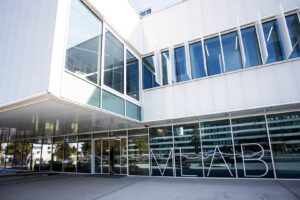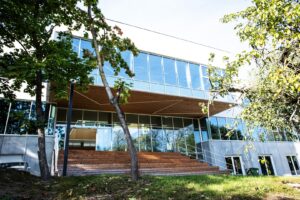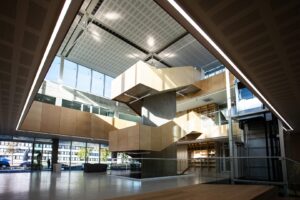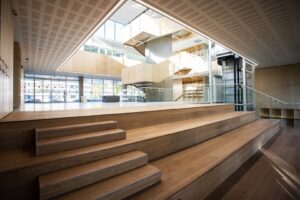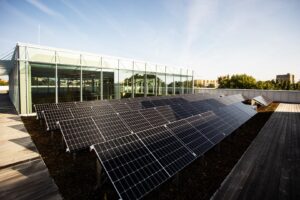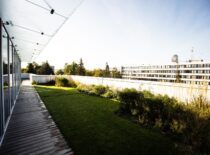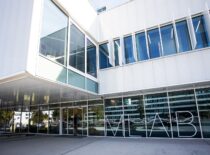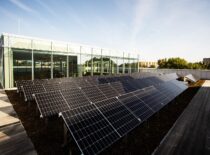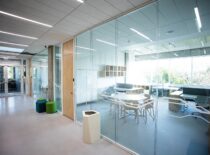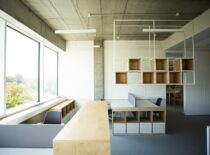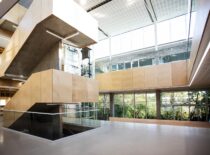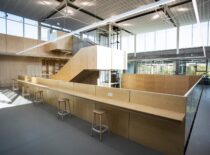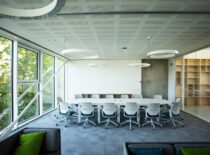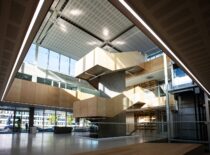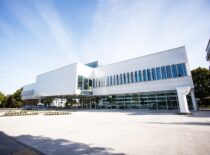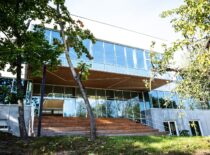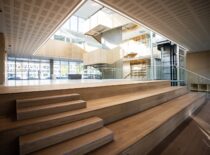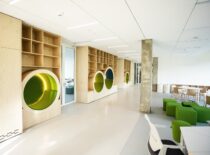A new unique building – Kaunas University of Technology (KTU) interdisciplinary prototyping laboratory centre M-Lab – has been erected in the heart of the KTU Student Campus. The building, which is poised to become a new highlight of the Campus and the city has preserved the architectural ideas of the former building, and is green outside and in – implementing sustainable architecture ideas and opening to the Gričiupis Park.
One of the main goals of the KTU M-Lab is the establishment and development of contemporary experimental and prototyping laboratories.
Opening soon
Rapid prototyping centre – for products’ faster path to the market
According to Lolita Jurkšienė, Director of the KTU Performance Management Department, who worked on the M-Lab project with her team, M-Lab combines different research, experimental development and innovation fields and competencies. The development of the centre will encourage cooperation between science and business in the development of product prototypes and their testing.
According to her, the main focus of research at the KTU M-Lab is on people – their health, well-being and the whole environment around them.
“For example, one of the laboratories set up at the centre will be a simulation laboratory, aiming to observe human behaviour and physiological reactions to various specific stimuli in an artificial environment (a person’s home, a shop, a hospital ward) in a way that is as unobtrusive as possible. This will allow researchers to develop, model and deliver personalised mobile solutions to significantly improve telemedicine services,” says Jurkšienė.
She said that by collaborating, researchers from different laboratories of M-Labs will be able to test and validate solutions in a near real-life setting, helping to create value-added innovations in digital health technologies and telemedicine. All research aims to address the growing challenges of ageing populations and poor quality of life for the elderly in many parts of the world.
As another example, Jurkšienė points to the laboratory, which will be used for rapid digital manufacturing for the rapid prototyping of low-volume micro- and nano-electronics products.
Fully automated solutions result in low operating costs
According to Gražvydas Visockas, Head of the KTU Infrastructure Development Department, who supervised the project, the reconstruction works of the KTU M-Lab are now fully completed.
“The building has been handed over to the Construction Completion Commission and the Construction Completion Certificate has been received. Commissioning of the building is currently underway, with scientists moving in and scientific equipment being integrated and coordinated,” says Visockas.
The total budget for the renovation project was just over €6 million.
“The reconstruction process took place during both the pandemic and the war in Ukraine. However, we managed to control all the risks and complete the work,” says Visockas.
“The building is characterised by a variety of harmonised contemporary solutions, both on the energy side, with geothermal borehole heat pumps and a solar power plant installed on the roof of the building, and on the architectural side, such as the green roof, the building’s two cantilevers, and the amphitheatres indoors and outdoors,” the KTU expert who supervised the construction of the building says.
The indoor and outdoor amphitheatres organically connect the inside of the building with the outside and offer a panoramic view of the landscaped part of Gričiupis Park with its flowing stream. The roof, which is “greened” with various plants and natural grasses, and the wooden paths are akin to those existing in the Lithuanian seaside dunes leading to the sea.
The building is fully automated, with a management system that allows its users to control all of the building’s engineering systems according to its duty cycles. All these integrated solutions enable the building to use minimal energy resources, resulting in low operating costs.
“All of this allows KTU to meet the goals of sustainable development,” says Visockas.
According to him, the public and official opening of the building is planned shortly.


